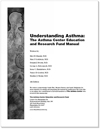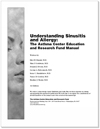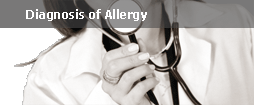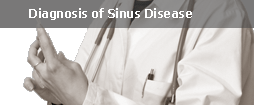Understanding Allergy, Asthma and Sinusitis
The Asthma Center Education and Research Fund Information Website
Asthma, Allergy and Sinus Disease are common problems that are often treated by allergy specialists. Asthma symptoms can include chest tightness, shortness of breath, coughing, wheezing and/or trouble exercising. Symptoms can vary from mild to severe and at times may be life threatening and result in hospitalization. Allergy symptoms often include symptoms of nasal congestion, sneezing and itchy eyes but can also trigger asthma or sinusitis. Sinuses that become inflamed due to allergy can result in headache, sinus pressure, persistent post nasal drip, sore throat, nasal polyps, diminished sense of smell, snoring, sleep apnea and/or fatigue. All of the above can result in a chronic and significant decrease in the quality of one’s life. Fortunately individuals and physicians can usually find a successful treatment regimen with modern medications, avoidance and/or immunotherapy. Allergy can also cause skin problems (hives, eczema, and contact dermatitis), drug allergy (for example, penicillin anaphylaxis), food allergy and insect sting allergy.
The information on this site will give you an in-depth understanding of the causes and treatment options for managing asthma, nasal and eye allergy and sinus disease.
The Asthma Center Education and Research Fund Manuals
 |
Understanding Asthma
Provides you with a clear understanding
of the causes of asthma and a complete outline of current treatment strategies.
Read the manual
Order the manual |
 |
Understanding Sinusitis and Allergy
What is Sinusitis?What are allergies and what is the relationship between Sinusitis and Allergy?
Read the manual
Order the manual |
|

|
|
|
|
|

Your doctor will ask you detailed questions about your respiratory symptoms, family history, home and work environment, past medical history, medications, diet and allergen exposures. Pulmonary function tests and allergy tests will help establish an accurate diagnosis.
|
|

| Your doctor will ask you the relation of your symptoms to locations where your symptoms are worse (home, work, hobbies), season, allergen exposures, food, medications, other medical problems and your family history of allergy. Specific allergy tests will be performed to identify your allergy. |
|

| Examination of the sinus with an endoscope and/or a CT scan will help identify obstruction and infection of the sinuses. Allergy testing will identify those with allergic sinusitis. A treatment program will be developed that best fits with your type of sinusitis. |
|
|
|
|
|